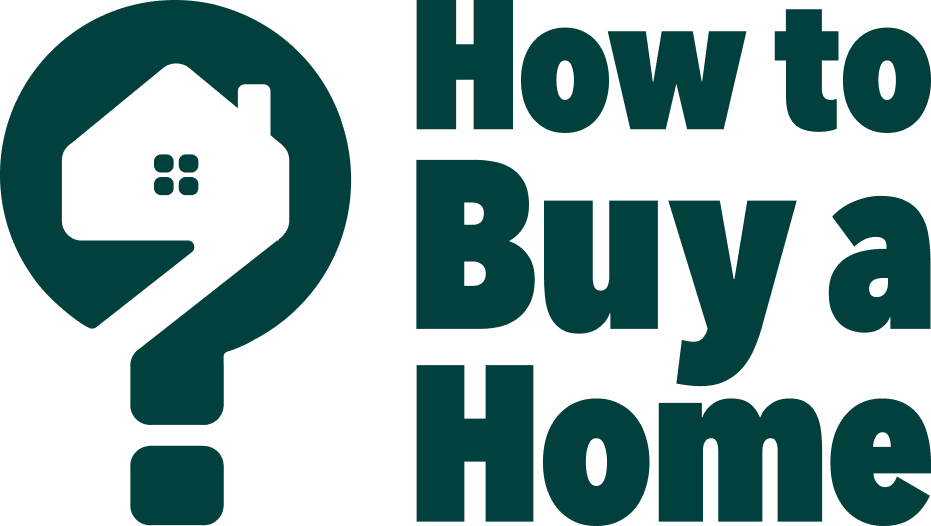
The biggest mistake at the top of everyone’s list in buying a home is thinking that everyone’s top five biggest mistakes are the same. Every first-time home buyer is different with a different set of circumstances, variables, and most importantly, goals. Your top list of mistakes to avoid is your own. There are things that most everyone should be careful of, but many of them can be avoided by having one thing at the top of your list – hiring a professional realtor. Don’t do this alone. You deserve to know all the ins and outs and secrets to doing this right. Forget the lists. Do your own research and hire a pro who will adjust to your list. But, since you asked…here’s David’s list.
—
The First-Time Home Buyer’s To-Do List
How Lists Can Help And Hurt You When Researching On How To Buy Your First Home
Welcome to the top five most important, crucial life or death items that every first-time home buyer must know. The question is why stop at five? I’m a realtor with eXp Realty. We’re going to be getting into those all-important, all crucial life-altering top five lists. These lists are a great way to get everyone’s attention. They’re lists on general things, on subjects that need clarification. What people out there have figured it out is it’s the best way to get you to click on their attempt to clarify something but truly to sell you something is to let you do the top five worst things, the top five biggest mistakes. We all want to be living our best life while we’re trying to figure this out to avoid the pitfalls. I was looking at #Adulting on Twitter. I saw a whole bunch of graduates, high school and college, are tweeting that the things they should teach you in school are like to balance a checkbook, to interview for a job, to save for retirement and to buy a house. We’re going to go through the list of things that are important to you and talk about why you are so excited about those lists.
This is the only podcast made exclusively for you, the first-time buyer. There are other ones out there, but this is the one that gets down and pulls back the curtain on the real estate industry and tells you all the secrets you need to know to make sure that this gigantic decision is the biggest financial transaction of your life. That it goes well for you. I also want to talk to those of you out there who are getting screwed because that it sucks. My goal is to help turn your largest financial commitment every single month. I want to turn it into something that’s working for you instead of working against you. Buying a home, it’s a forced savings account except now what you’re going to be doing is you’re going to be saving instead of a little bit every month, you’re going to be saving with your biggest payment every single month. You get a roof over your head in return.
Let’s try to turn you from an aggravated renter who gets angry as the first of the month comes into a happy homeowner. Before we get into the list, we had over 1.65 million first-time home buyers, that was 33%. The average age was 32 years old. Millennials, since you have turned 30, first-time home buyers have been between 32% and 39% of the market. That’s about 1.6 or 1.7 million first-time buyers every single year. If you think you can’t do it, you can. I will say it again, 18% are single ladies. Let’s talk about the list. First-time buyers’ top big things. Why so many lists? It’s because it’s what you click on. People love lists. It doesn’t matter. I’ve been watching ESPN. They not only added the top ten, but they also added the Friday Funnies and the Top Not Ten because everybody loves lists.
The red carpet Top Five Worst Dressed is always a big thing. New Year’s Eve, every year, you got the top ten or the top 100 things that happened in the last year on Facebook or Instagram. The five best things I learned from Game of Thrones. Lists are big. Google anything and you will see that people are using the top five worst mistakes to get your attention. That’s what they’re trying to do. They’re preying on two things that most of the general public love, lists and trash talk. They wanted to give you a top five worst, top five mistakes. I’m going to do that too because if it gets people to click, listen and hear the truth that I’m trying to spread throughout all North America, that is awesome.
The top number one mistake of first-time buyers is that all you did was click on a few top five biggest mistake YouTube videos and now you think you’re ready to go out and buy a house. I’m not ragging on you. I’m not saying that what you do with that is bad or dumb. No, that’s great. I’m saying, “Please do a little bit more than that. Please do more than click on Pinterest,” because if you click on Pinterest, you will see nothing but lists for first-time home buyers. Please research and work and try to find a realtor that can do all this for you because a good realtor is someone who’s going to navigate you through the entire process and be an advocate for you.
Our lists are going to be based on some of our audience. We’ve got an audience that is looking to try and figure out how to buy a home and everyone’s in way different places. People have different questions at different times. My list is going to be the top ten questions that I got asked by Katrina and Martin. Let’s start with Katrina. She’s up above Los Angeles. She and her husband are trying to figure out how to buy a house. My favorite thing she said was she attended a first-time buyer seminar and she still feels lost. It made her more confused.
[bctt tweet=”The timing of your purchase is going to change all of the contingency periods.” username=””]
She asked about where’s a good school district. The top way for you to figure out where is a good school district is to listen to the best internet tools podcast. As a matter of fact, you can go to DavidSidoni.com because all of my podcasts are written out there. If you go there, you can get the complete transcript and at the bottom of every podcast, you’ll get a list. There are tons of lists of all the internet research that I’ve brought up. We’re up to 81 first-time home buyers. All of them have helped me throughout several years. We’ve all been working together because those sites always change. If I get preapproved, how long is that valid? It depends. You can get what we call a lock on your loan, usually it’s 30 days. Sometimes we can extend it for 60 or 90 days. There’s usually a small fee involved with that. The first step is figuring out what your number is. As you get close, you can lock your loan. I’ll do another podcast where we talk about locking that loan and potentially getting a lock with a float, which means that if the rates drop in that 30 days, you get one time where you can drop it down.
Will a preapproval affect our credit score? Yes, it will. You’ve got to do it, but it’s not as bad as you think. Those of you guys who are new to credit, every time that you apply for credit, you get what’s called a credit inquiry. If you get a credit inquiry, it can affect and lower your score. What that’s doing is it doesn’t want you to go out and apply for 78 credit cards in one weekend. They changed the law a few years ago so that if you are applying for something in the same industry for the same thing, it only counts as one hit on your credit. Usually, by the time that you purchase it, it’s not a big deal. If you’re going out to buy a car, you can get credit checks of all the different car dealerships until you find the right deal and it only counts as one inquiry. With buying a home, if you’re doing the twelve-month plan, the day that you signed your last lease, the next day, you should be going out and getting a full loan approval because you only know what you need to do for the next twelve months if you get a full loan approval. You’ll get one inquiry. Let’s say you get that inquiry June 1st, 2019, by the time you come around to buying next year, you’ll have plenty of time to get that score back up.
Will the realtor help us in coming up with the right contingencies to write with the offer? First of all, what’s a contingency? A contingency is the things that you’re going to ask for a within the offer. You’re going to be coming up with how long you need to do to have the escrow remain not binding while you’re trying to figure out do you want, for your inspections, to get the termite inspection, to look at the HOA documents? The bottom line is a realtor is going to walk you through all of that. There are specific boilerplate terms no matter what state you’re in, depending on where you are in the country and on what province if you’re up in Canada, each place has its own specific rules and you’ll see on your contract that almost everything is written out ahead of time and you fill in a few little things.

Do we get to pick the escrow company or does the seller? Yes. When you are the buyer, you do not. Usually, the seller gets to pick the escrow and title company. What that means is that the realtor usually has a relationship with an escrow or title company that is selling the home. As long as they’re a reputable person, most of the time the seller gets to choose that person. There are some bad people but if your real estate agent and your realtor’s working hard for you, sometimes we have to do that to make sure escrow stays on top of it. That’s why you need to choose a fantastic realtor, not a new realtor who doesn’t even know what to look for, who doesn’t know when an escrow or title company misses something or a lawyer, if you’re in that part of the country, misses something. I know that you think maybe you could save money by using a discount realtor or maybe you can use your friend or your cousin who got their real estate license. It’s too big a deal to try to do this on your own. Make sure you’ve got an experienced agent helping you. If you can’t find one, reach out to me. I’ll try to help.
You’ve already got the how to interview a realtor podcast and that should be able to help you. The industry is broken. We’re going to try to fix it. There are good people out there. Unfortunately, we have to search for them. About 95% of the time, it is a seller’s choice. Does the process go in this order? Is it preapproval, home search, offer, appraisal, escrow, closing? For some of you, those words might not even mean anything but here’s what I’m going to do. I’m going to give you this list. This is the step by step thirteen things to buy a house. These are answers for you that are going to be helping you understand how the process works with all the documentation. Starting from the day you think you should buy a house to the day that you get your keys, here are the thirteen steps.
Step 1: Research
Step one, research. The good news is you’re doing that right now. You’re here with me. Keep researching, dig deep, remember and do what you Millennials do, which is verify that research, check and see who said it. Find out if it’s someone who’s purchased one home and decided to put a blog up on the internet or if it’s someone who helps people buy and sell multiple homes and make sure that it’s someone who has sold a home in the past month or two, not someone who sold home six years ago.
[bctt tweet=”There are good people out there. Unfortunately, we just have to search for them about 95% of the time.” username=””]
Step 2: Fix Your Credit
Step two, start fixing your credit. I know this is going to sound early but understand the way credit works is it’s all the more time that you have, the better. The number one thing that every single one of my first-time buyers has said is, “I wish I’d started the process sooner.” People are losing tens of thousands of dollars and fixing your credit, it takes time. Whether you’re getting rid of some big ugly stuff on your credit or whether you’re trying to raise your score, there are a ton of tricks. You can go back. I’ve got two podcasts on credit. There are a ton of tricks in there that can help you raise your score little by little. You can only do that with time.
Step 3: Learn How To Budget
Step three, start learning how to budget. Start living on 80% of what you make. Put 20% away every single month. Some people say 70, that’s from the book, Richest Man in Babylon. I believe in that process as well. Item number four is to start saving. Item number three, a big part of the budget is saving, but it’s also looking at where are you spending your money, how are you spending your money?
Step 4: Start Saving
Item number four is making sure that within your budget, saving is part of it.
Step 5: Ask Your Friends And Family To Support You
Item number five is asking your friends and family if they can contribute to your big-time venture. Why ask so early? If they’re reluctant, then you give them a little time to think about it. Also, it lets people understand that you’re serious about this. If you’re saying, “In a couple of years, I want to buy a house. Is there anything we can do?” You never know. Parents, grandparents, crazy uncle, crazy aunt maybe they can move some money around, but I have had clients in the past who have waited too long and their parents would have sold another property. They would have cashed out a retirement fund. They would’ve moved money around it. By the time we get to ask them, it’s too late. We can’t move things around quick enough. If you have people supporting you, get them on your team early and you never know. The other thing too is to ask people you know are going to say no because over those next few months you can guilt them into trying to figure out who else in the family has some money tucked under the mattress. Show them you’re serious.

Step 6: Pick A Realtor
Item number six, interview and pick a realtor. Check out the whole podcast on that. Coming from a realtor, I’m telling you there’s a lot you can do on your own before you get to a professional. Everybody comes to me and by the time they come to me, a lot of times they’re out looking at open houses and I’m like, “We’ve got to go back. We’ve got to work on your credit. We’ve got to check out your budget. We’ve got to get your savings together.” Start all that stuff on your own and start talking to a realtor.
Step 7: Get A Mortgage Broker
Item number seven is getting your mortgage broker. Our podcast episode 11, I talked about how you want to use a referral from your realtor to find a mortgage broker, someone who can give you multiple options different than a bank or a credit union.
Step 8: Check Your Preapproval Numbers
Number eight, check your preapproval numbers. You’ve got your number and now you can figure out where you’re going to go from there.
Step 9: Find Homes That Fit Your Budget
Number nine, go back to your realtor and find out what homes fit into your budget. You’re going to get that preapproval number. Once you get that preapproval number, you are never ever going to talk about buying a home because of how much the list price is. You’re going to look at that list price as a monthly number. That’s the important part. Start looking online. Start looking with your realtor and check out some homes.
Step 10: Assess & Reassess Your Budget
Number ten, as you looked online the homes your realtor has helped you figure out, assess and reassess your budget. Look at your monthly numbers, discuss and fully understand the mortgage interest tax deduction. Once you figure out the mortgage interest tax deduction, you will be stoked and excited to understand that you can raise your monthly income because the government is going to be giving you a big tax write off. If you’re buying a house with a loan over $750,000 then good for you. Maybe you don’t need to stress about the tax deduction.
[bctt tweet=”A big part of the budget is saving, but it’s also looking at where you are spending your money.” username=””]
Step 11: Narrow Your Online Search
Number eleven, after you’re solid on your numbers, that work with the neighborhoods and the things that you’re looking for in a house. You now narrow your online search. Go online to DavidSidoni.com, click on the podcast, The Best Internet Tools To Search When Buying for your First Home.” That’s how you get into this. Number eleven, you use those internet tools and you start searching like crazy. You can do some drive-bys in some neighborhoods. I’ve recommended doing drive-bys on the day and at night so you can find out what’s going on.
Step 12: See Homes
Once you’ve done all that, we’re at number twelve. It is when you go see some homes. That’s when you and your realtor go look at places. That’s when you go look at open houses, either with or without your realtor. That’s when you get out there. Remember, this is a lot of preparation. You should be doing more preparation for this before you go look at open houses. If you do all that preparation, you feel more confident when you’re going to look at the homes like you know what you’re doing.
Step 13: Offer & Closing
Number thirteen is getting into the offer and the closing. Different parts of the country call these different things. Where I am in California, we do call it an escrow period or a closing period. It is different in every part of the country. It’s also different depending on the time of the market. This is a huge thing to remember. The timing of your purchase is going to change all of the contingency periods. That’s the buyer beware period. When you put an offer in on a home, you have a period where you get to inspect the home, look at the home and decide whether or not you want to go through with the purchase before any of your money is in jeopardy. There will be a cutoff time when you say, “I’ve seen everything, I’ve done my inspections now I’m going forward.” You have a small deposit that at that point, you didn’t sacrifice and say, “If I don’t close this deal now, that money goes back to the seller.” You do have a contingency period in the beginning and that is going to change and be different depending on the time.
If you’re in a high demand time where you’re in multiple offer situations, you might have to have a shorter contingency period. On the other side, if the market slowed down a lot, you can ask for a big old long contingency period and be like, “I’m the only one out here writing an offer. You’re going to do it on my terms.” Most importantly when you get into that offer situation, remember you were buying from a single person selling a single item. No list is going to tell you how to buy a house because you’re buying a house from an individual and every individual is different. There’s no manager to call if you don’t like the purchase that you bought at the counter. There’s no corporate place to email and to hassle and say, “You told me I was going to buy this product and it was going to be this and it’s not.” That’s not the way it works. It’s one person. There is a good chance they could be that flipping crazy. It happens.

Understand there are general guidelines but number thirteen, doing the closing, it’s got about 25 sub-points and the order goes like this. You make an offer. You’ll negotiate the offer. Hopefully, if it gets accepted, you’re going to open an escrow if you’re in my part of the country. You’re going to open into a contract in other parts of the country. You have to figure out when you get your lawyer involved. This is when you’re going to get in my part of the country escrow and title involved. You’re going to pay your initial deposit in the first few days. That initial deposit gets held by a third party and is not subject to being part of the transaction until you finish all of your inspections and you sign off on your contingency period.
You’re going to do your inspections. You’re going to get an appraisal. All that needs to happen in your contingency periods. Here in California, that’s typically a seventeen-day period to do that. You’re going to negotiate any repairs. If the appraisal comes in low, you’re going to negotiate any issues with the appraisal. See if you can get them to lower the price or see if you have to bring in more money. Is this a lot? Yes. That’s why you can’t get this all in one top five list. You’ve got to get insurance. You’ve got to do your final walkthrough. You sign the loan papers then you fund the loan. You record the property with the county or the city of the state, you get your keys and you own a home.
Nobody can tell you how to do that in the top five. That’s why I go back to number six on my list and hire a great realtor. It’s free. They work for you. Go back and listen to all my other podcasts. It is a big deal and you should have someone on your side. All those dates and deadlines, that’s called the contingency period. It’s a buyer beware. Depending on the deal, the demand and the timing that we talked about is how long you want those periods to be in. Your realtor’s going to help you with that. I’m freaked out that the episode that I have about interviewing a realtor is the least listened to episode of all my podcasts so far. I’m praying that all you guys out there are in the early planning stages, that’s why you’re not listening to that one but it’s the most important one. When you get there, listen to that.
[bctt tweet=”If you have people supporting you, get them on your team early.” username=””]
If you are closer and you have questions about all these other things, hang on tight. I just started the podcast and I’m trying to download thirteen years of all my experience in a clear manner and try to be slightly entertaining while simultaneously trying to disrupt the entire real estate industry and change the way they do things and start totally screwing first time buyers. There is good news, the internet has started to screw the industry back. There’s a chance that together with this podcast and you telling all your friends, we could get things going and change the way this industry works because something’s going to have to change soon. I don’t want to see you get thrown under the bus.
If you’ve got questions because you are closer to that, email me directly as you’ll find out like Martin and Katrina, I might do a whole podcast about it or I’ll answer you directly. I’ve got a huge announcement for all you out there in podcast land. Let me give you a couple of resources first. As always, the easiest thing to find anything is DavidSidoni.com. If you go there, you get links to the blog, you get links to my YouTube channel. There’s Instagram and Twitter links on there too. If that’s the kind of way that you like to communicate, I will DM or message or whatever they do. We do have a Facebook group too, How to Buy A Home.
I do give all of this away for free. I take the time out of my schedule helping other first-time buyers. I’ve changed my entire business to help people like you. It’s a grand mission for me, a labor of love. I want to change the industry and you could help me by writing me a review on iTunes or go on my Facebook page and write a review. On iTunes, what that does, it gets more people to listen to the podcast. Share this with someone that you love. Get it out there. Why? If you took five minutes to write a review, maybe somebody out there could find the podcast.
We have our first first-time buyer closing on a house, Jacqueline in Denver. She was close. She was starting to feel frustrated. She started looking around, found the podcast. She gave me a buzz. I found someone in Denver that I’ve been working with for over a decade. I had her interview. After the interview, they thought it was a good fit and that team helped her close on a home. If you’ve got questions if you want a list that you want to write and you want me to answer those questions to, send them to me, I will get to it. This is important to me. Send me your questions, share this with other renter friends. Remember, you can do this.
Important Links:
- eXp Realty
- Richest Man in Babylon
- The Best Internet Tools To Search When Buying for your First Home
- YouTube channel – How to Buy A Home
- Instagram – David Sidoni
- Twitter – David Sidoni
- How to Buy A Home on Facebook
This podcast was started for YOU, to demystify things for first time home buyers, and help crush the confusion. After helping first timers for over 13 years, I knew there wasn’t t a lot of clear, tangible, useable information out there on the internet, so I started this podcast. Help me spread the word to other people just like you, dying for answers. Tell your friends, family, and perhaps that random neighbor you REALLY want to move out about How to Buy a Home! A really easy way is to hit the share button and text it to your friends. Go for it, help someone out. And if you’re not already a regular listener, subscribe and get constant updates on the market. If you are a regular and learned something, help me help others – give the show a quick review in Apple Podcasts or wherever you get your podcasts, or write a review on Spotify. Let’s change the way the real estate industry treats you first time buyers, one buyer at a time, starting with you – and make sure your favorite people don’t get screwed by going into this HUGE step blind and confused. Viva la Unicorn Revolution!
Instagram @DavidSidoni
Tik Tok @howtobuyahome

